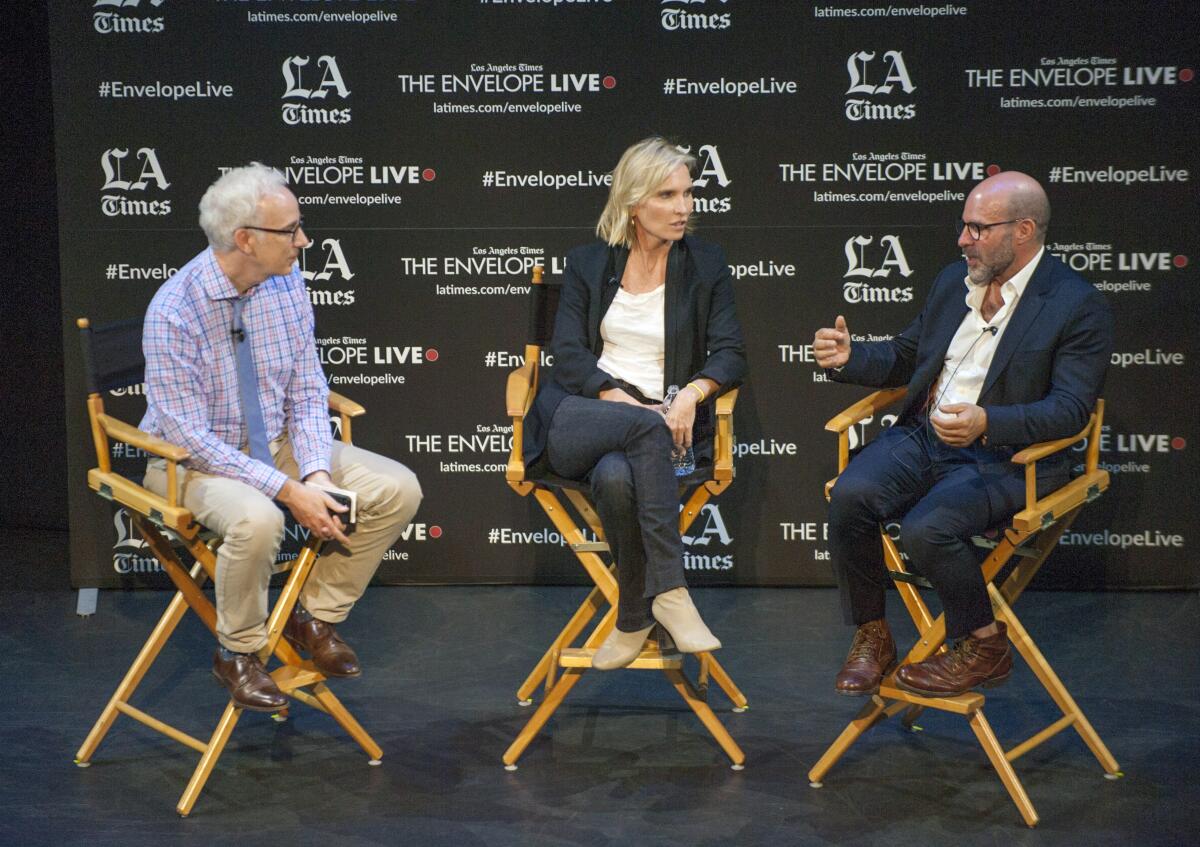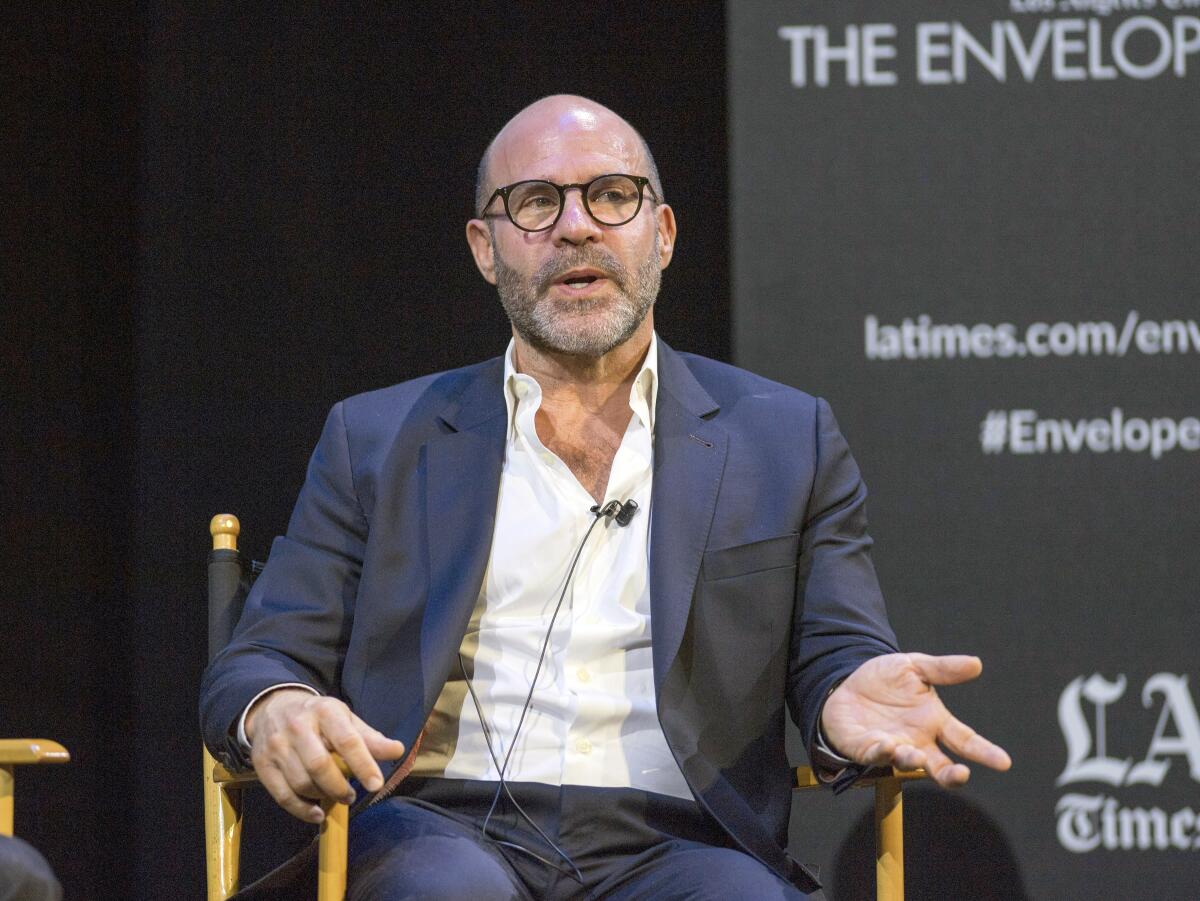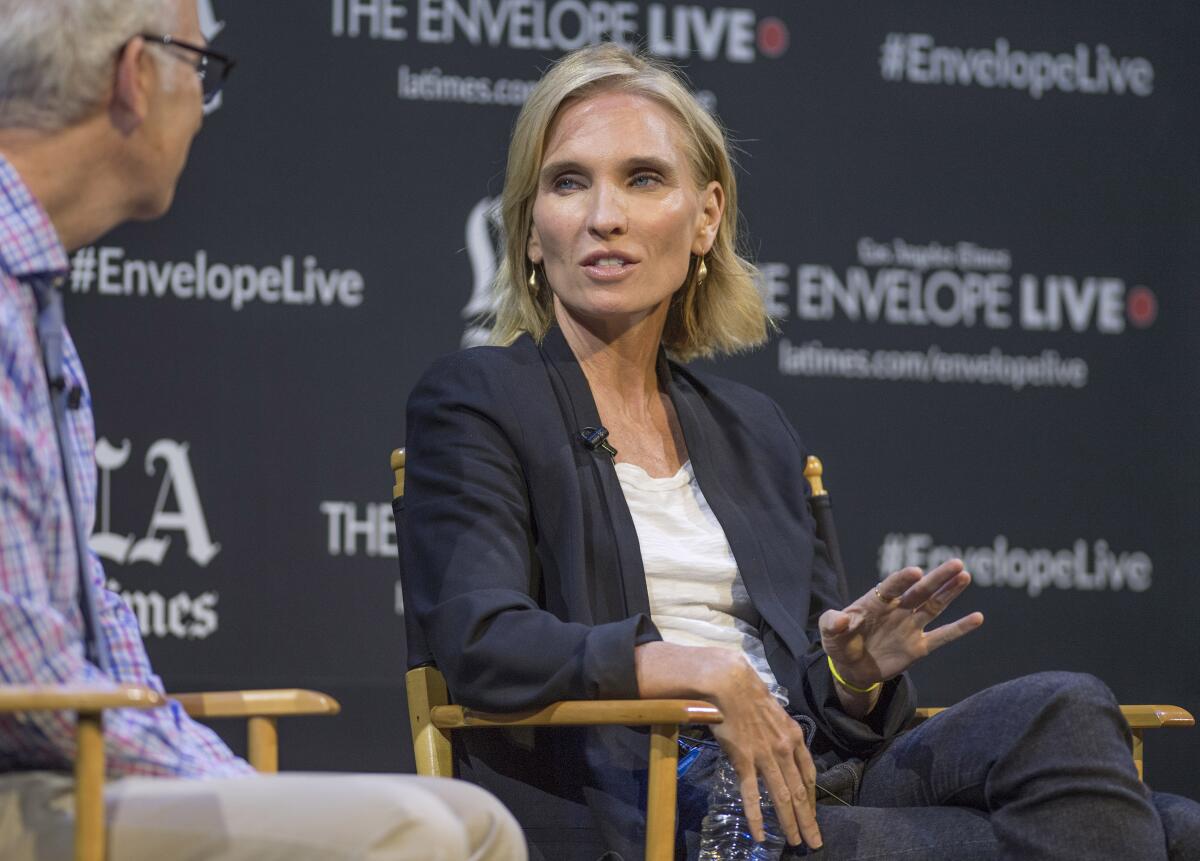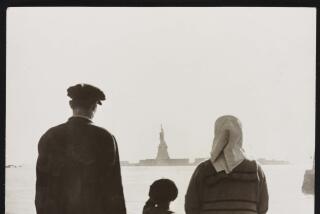Painful truths about American torture in ‘The Report’

A new film from Amazon Studios seeks to tell the American people painful truths about the CIA’s “enhanced interrogations” during the War on Terror.
The 2019 Envelope Live screening series continued Oct. 2 with a presentation of Scott Z. Burns’ “The Report” at the Montalbán in Hollywood. The Times’ Glenn Whipp moderated a Q&A with producer Jennifer Fox and writer-director Burns to discuss the need to tell the story of the Senate Intelligence Committee’s report on the CIA’s post-9/11 torture program.

Burns pointed out that “to this day, over 50% of our country will say” the CIA’s post-9/11 actions, specifically its “enhanced interrogations,” saved lives. A staffer for Sen. Dianne Feinstein (D-Calif.) named Daniel Jones (played by Adam Driver) led the investigation into the program, generating a 6,700-page report that debunks that notion.

Fox used a line from the film, “It needs to work for it to be legal,” to illustrate the government’s stake in convincing the public the program was effective. She added, “There was a true mandate to sell this story … there was a giant campaign toward that.”
Burns said at one screening for “400 or 500 people,” they asked viewers before the film if they thought the CIA’s interrogation methods had been effective, and 54% said yes. “After they saw the film, we asked them the same question and 14% believed that was true.”

“The Report” challenges the narrative that CIA “enhanced interrogations” saved lives after 9/11.
Burns said when he began work on the project, he envisioned it as a “dark comedy.” But as he got to know the real Jones, and the investigator told him “how hard it was to get this thing out in the world … at that point, I made this pivot. I called Jen and said, ‘I think there’s a better way to do this.’ ”
The film became a straight drama about an idealistic young man fighting for years to reveal important information to the American public.

The makers of “The Report” initially imagined the film as a dark comedy. Meeting the investigators involved changed their minds.
The movie does get dark. “The Report” is frank in its depiction of torture — “walling” and “waterboarding” in particular.
“That was probably the thing we struggled with most along the way,” noted Burns. He said he almost felt as if he should apologize to audiences for making them witness those depictions and that earlier conceptions of the film shied away from them. But, he said, former Navy General Counsel Alberto Mora told him, “If you don’t show it, you’re compounding what the CIA did. They destroyed the tapes because they knew how powerful images were. They knew how powerful film was. And they didn’t want you to see that.”

The makers of “The Report” decided it was necessary to honestly depict the bruatlity of torture.
One person who hasn’t commented on “The Report” and did not participate in its making was Feinstein (played in the movie by Annette Bening).
Fox said, “We were told that’s not how she works. I think she has a lot of integrity and feels like the normal process for her is not be on a red carpet or in any way advocate for a film.”
Burns added, “Her response is, ‘I know what’s in the report.’ ”

The filmmakers of “The Report” discuss Sen. Dianne Feinstein’s lack of involvement in the drama.
More to Read
Only good movies
Get the Indie Focus newsletter, Mark Olsen's weekly guide to the world of cinema.
You may occasionally receive promotional content from the Los Angeles Times.











